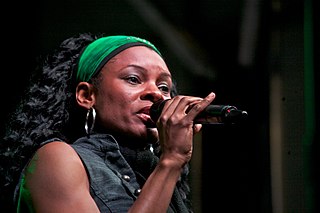A Quote by Bill Cosby
I don't think you can bring the races together by joking about the differences between them. I'd rather talk about the similarities, about what's universal in their experiences.
Quote Topics
Related Quotes
People are valuable regardless of the color of their skin. You can be open about it and talk about it. You don't have to pretend that you are not different, but you can learn about those differences God didn't say, 'Ooh, I made you brown on accident.' He made them that color on purpose. And if you do not have friendships with other races, then ask God to bring you some. He will.
For me, what works well about 'Life in a Day' is that it's emotionally affecting without being manipulative. It really does make you think about the connectivity of the world, the similarities and differences. It shows the experiences we all go through: birth, childhood, falling in love, having kids, getting ill, dying.
There are a lot of little things about our bodies that we all know, but we never talk about. That's what interests me. These are practically universal experiences; nobody mentions them! Some of them are disgusting. Some of them are appallingly revolting and degrading even to the most degenerate mind. So let's get started with a couple of them.
There's going to be biological differences between the genders. There's going to be biological differences between two women or two men. There's biological differences between all of us. My concern is, why are we so concerned about it? Why are we so worried about it? Why, whenever a study comes out about men do this one way and women do this one way, or men's brains and women's brains - why are we so interested in that? You know, what makes us so fascinated by differences between the sexes? And I think more often than not that interest is deeply embedded in sexism.
One of my favorite literary theorists, Mikhail Bakhtin, wrote that the defining characteristic of the novel is its unprecedented level of "heteroglossia" - the way it brings together so many different registers of language. He doesn't mean national languages, but rather the sublanguages we all navigate between every day: high language, low language, everything. I think there's something really powerful about the idea of the novel as a space that can bring all these languages together - not just aggregate them, like the Internet is so good at doing, but bring them into a dialogue.
I belong to a bowling team with black and Latino coworkers. And when we get together and we talk about politics - I'm almost quoting him - he said, we don't talk about Black Lives Matters. We talk about what matters to our families. We talk about jobs, and we talk about the fate of the country. That is America, and you can reach those people.
I think any information about any type of art form, it's always the right time. But since the last one, I could see there were many things about the culture of DJing that we don't really talk about. We don't really look at how the music is made, how it's conceptualized, how it's put together. We talk about the equipment and the software, but we don't talk about the reasons why we put the music together in the first place.
The national media will talk about national problems because it's something that everyone in all 50 states can understand, but the reality is these are minor factors. These are local races. ... The issues tend to be less ideological than for Senate races or races for president. ... It's about potholes and streetlights.
































